News Archive
Filter by Division
Filter by Categories
Drs. Chan and Bresler Co-authored New AFIP Fascicle
January 8, 2026 / PublicationsPublication on Diagnosis of Renal Cell Carcinomas Supports Enhanced Patient Care
July 21, 2025 / Anatomic PathologyOne of the defining characteristics of Michigan Medicine’s Department of Pathology is its commitment to broadly sharing expertise to ensure patients everywhere receive the best care possible. Recently, Pathology faculty, Robert Humble, MD, Rahul Mannan, MD, and Rohit Mehra, MD published an article in Kidney Cancer describing the most recent advances in diagnosing renal neoplasia, including their morphological context, diagnostic algorithm, and available molecular biomarkers to assist pathologists in correctly identifying renal cell carcinomas (RCC) of varying types. In addition, whenever possible, they also provided a brief summary of the current therapeutics that align with each subtype of RCC.
Reeling in Workplace Engagement: FISH! Philosophy’s Impact in Pathology
July 16, 2025 / PublicationsTwo years ago, a team of Pathology staff embarked on a journey to become culture-change advocates by obtaining FISH! Philosophy Trainer certifications. They received a Wellness grant from Michigan Medicine and began training faculty and staff in the FISH! Philosophy, collecting pre- and post-training data. This team, made up of Melina Adler, Karren Barron, Gloria Barkley, Chris Distelrath, Lynn McCain, and Julene Pummill, supported by Drs. Jeffrey Myers and Kamran Mirza, recently published their data in Laboratory Medicine.
Vennetti Lab Offers a Flicker of Hope for Parents of Pediatric Cancer Patients
July 1, 2025 / Experimental PathologyOne of the most heartbreaking things a parent can hear is “Your child has an aggressive, malignant brain tumor.” When that is followed up with the physician saying there is no effective cure, parents are left devastated. This is what motivates Dr. Sriram Venneti and his research laboratory to dedicate their all to finding a cure. Venneti focuses on Group 3 medulloblastomas, which are very aggressive pediatric brain tumors with no known cure.
Two Faces, One Oncogene
June 27, 2025 / PublicationsCAP Today Features U-M Pathology's Digital Pathology Service
January 29, 2025 / Anatomic PathologyWhen one hears “Artificial Intelligence” – what comes to mind? For some, it may be Terminator-style beings or rogue artificial life forms. In Pathology, however, AI is bringing enhanced patient care and improved satisfaction to pathologists, patients, and clinicians alike. In a recent article in CAP Today, Michigan Medicine’s Department of Pathology was highlighted for its advanced digital pathology workflows. Drs. Ul Balis and Mustafa Yousif described the process for initiating digital pathology into our standard of care, which required significant advanced facilities planning, research, development, and investments.
Organoid model predicts bladder cancer treatment response
September 20, 2024 / Anatomic PathologyPersonalized medicine utilizes an individual’s genetic and genomic make up to treat and prevent diseases. The promise of personalized medicine continues to grow as new scientific discoveries uncover previously unknown features and drug sensitivities for tumors. In a recent study, Dr. Aaron Udager, associate professor of genitourinary pathology and co-director of our PSTP program, was co-senior author on a publication with Dr. Sofia Merajver, professor of epidemiology and internal medicine and the director of the breast and ovarian cancer risk evaluation program.
New Uses for Common Drug May Help Patients with Inflammatory Diseases
September 19, 2024 / Experimental PathologyAn article recently published by the Nuñez lab provides an exciting discovery for individuals with Alzheimer’s disease, diabetes, and certain other autoimmune diseases caused by aberrant NLRP3. The research, led by Dr. Jie Xu with Drs. Joseph Pickard and Gabriel Nuñez, discovered that a common, safe, FDA-approved drug used to treat alcoholism and cocaine addictions, disulfiram, inhibits the production of NLRP3 inflammasomes. When NLRP3 is activated, it can cause inflammation leading to multiple health issues.
And the 2023 Best Paper Award goes to...
September 3, 2024 / AwardDr. Rohit Mehra, Professor and member of the Michigan Center for Translational Pathology (MCTP), and his international team of collaborators were recently recognized by the Asian Journal of Urology for the best paper published in their journal in 2023. This award-winning study is a literature overview of chromophobe renal cell carcinoma (ChRCC), the third most common RCC subtype.
Research Finds Possible Therapies to Target Oncogenic Transcription Factors in Multiple Cancer Types
July 25, 2024 / PublicationsA study from the University of Michigan Health Rogel Cancer Center furthers research that suggests the potential of developing new cancer treatments to target oncogenic transcription factors by indirectly affecting their ability to access enhancer DNA in chromatin.
The findings appear in Cancer Cell.
Led by Arul Chinnaiyan, M.D., Ph.D., S.P. Hicks Professor of Pathology and director of the Michigan Center for Translational Pathology at Michigan Medicine, the research builds on previous work to find genetic vulnerabilities to treat transcription factor-driven cancers like prostate cancer.
Researchers find common immune system mechanism between pregnancy, cancer
July 8, 2024 / PublicationsTo understand why some cancers successfully circumvent the immune system to grow unchecked, researchers turned to pregnancy.
 “In pregnancy, the immune system does not reject the growing fetus, so we know there must be mechanisms active in the placenta. In cancer, it’s the same thing: the growing tumor is not rejected by the immune system. It means the cancer cells have developed strategies to suppress immune rejection, same as in pregnancy,” said Weiping Zou, M.D., Ph.D., professor of experimental pathology.
“In pregnancy, the immune system does not reject the growing fetus, so we know there must be mechanisms active in the placenta. In cancer, it’s the same thing: the growing tumor is not rejected by the immune system. It means the cancer cells have developed strategies to suppress immune rejection, same as in pregnancy,” said Weiping Zou, M.D., Ph.D., professor of experimental pathology.
It’s a good thing in pregnancy – it allows the baby to grow. But in cancer, it means the tumor grows unchecked and treatments meant to stimulate an immune response are not effective.
AP-funded Grant Leads to Human Pathology Cover Story
June 11, 2024 / Anatomic PathologyThe Division of Anatomic Pathology in the Michigan Medicine Department of Pathology offers grant funding for faculty and trainees to pursue research interests related to anatomic pathology that may not otherwise be funded. One of these internal AP grant-funded projects, led by first-author Eman Abdulfatah, MD and senior-author Rohit Mehra, MD, resulted in a recent cover story in Human Pathology entitled “Extragonadal germ cell tumors: A clinicopathologic study with emphasis on molecular features, clinical outcomes and associated secondary malignancies.”
MCP Graduate Student Koral Campbell Named Rogel Graduate Student Scholar
May 28, 2024 / AwardCongratulations to Koral Campbell, Molecular and Cellular Pathology graduate student on being awarded the Rogel Cancer Center’s TrEC Scholarships Graduate Student Scholarship 2024. Koral’s winning application on The Role of High Fat Diet in Clonal Hematopoiesis and Leukemogenesis earned her a $25,000 award to offset her tuition and fees for 2024. In addition, as a Rogel trainee, she will have priority access to training opportunities and additional scholarships.
Development and Validation of an 18-Gene Urine Test for High-Grade Prostate Cancer
May 13, 2024 / Experimental PathologyIn a manuscript published this week in JAMA Oncology, senior author Dr. Arul Chinnaiyan and members of the EDRN-PCA3 Study Group reported on their development and validation of a new 18-gene urine-based test for diagnosis of high-grade prostate cancer, MPS2. This test was initially developed in the Department of Pathology.
What is in your gut?
January 5, 2024 / Experimental PathologyDr. Gabriel Nunez 's Lab Makes Breakthrough Discovery in Colitis
Dr. David Keren Celebrates the Publication of 14th Book
December 7, 2023 / PublicationsStudy provides mechanistic link of diet to inhibition of colitis in Crohn's disease
November 16, 2023 / Experimental PathologyCrohn’s disease (CD), one of the major forms of Inflammatory Bowel Disease, is a chronic relapsing intestinal disorder that affects millions of people globally. The cause of CD is unknown, but it is thought to result from a dysregulated immune response against environmental factors, including intestinal microbes, in genetically susceptible hosts.
The critical role that the intestinal microorganisms, collectively known as the gut microbiota, plays in the pathogenesis of CD has been investigated over the past two decades. Given the importance of the gut microbiota in triggering CD, the development of therapeutic approaches that target disease-causing intestinal microbes may provide a unique approach to the treatment of this disease [...]
Stories of Love, Loss, and Wonder - Dr. Julianne Szczepanski Shares Her Experience
October 4, 2023 / PublicationsDr. Julianne Szczepanski shares her story of parenting while working in healthcare.
Kevin Yang, Nesvizhskii Lab, publishes first first-author publication
August 8, 2023 / Experimental PathologyCongratulations to Kevin Yang (Ph.D. student in the Nesvizhskii lab) on his first first-author publication in Nature Communications! In a manuscript published in Nature Communications, Ph.D. student Kevin Yang, from the Alexey Nesvizhskii lab, presented a new computational tool, MSBooster [...].
Study brings insight to kidney cancer with gene mutation
August 8, 2023 / Experimental PathologyA study from clinicians and researchers at the University of Michigan Rogel Cancer Center, U-M Department of Pathology and the Michigan Center for Translational Pathology reveals findings from over 800 clinical assays performed for kidney patients with MiTF family gene mutations.
New Antibody Treatment Discovered by Ward Lab Approved by FDA
April 6, 2023 / PublicationsAfter several decades of hard work by many scientists at the University of Michigan Medical School and elsewhere, an antibody (anti-C5a) has just been approved by the US FDA for treatment of humans who are septic and have developed lung infections with COVID-19, resulting in severe pulmonary dysfunction requiring external lung support. The antibody, anti-C5a, was originally developed in the Dr. Peter Ward laboratory in the early 2000s. The mAb was shown to dramatically reduce lung infections in polymicrobial sepsis in mice.
Idiopathic Pulmonary Fibrosis Research Discovery Published
April 5, 2023 / PublicationsA recently published research study led by Drs. Sem Phan and Tianju Liu from the Department of Pathology reported new findings that could help scientists predict disease progression and suggest a new immunotherapy target for the treatment of IPF and other fibrotic lung diseases.
These findings uncovered a new role for the immune checkpoint marker (B7-H3) in lung fibrosis that can potentially serve as a novel target for immunotherapy to slow down or abort the progression of lung fibrosis in patients with IPF and other chronic lung fibrotic diseases. In addition, sB7H3 levels in the plasma could serve as a potential marker to predict how quickly the disease progresses in patients and assess responsiveness to therapy, allowing for more informed treatment decisions.
Clinicians' perspectives on Integrating Pathologists into Patient Care Teams
March 2, 2023 / EducationResearchers from the Department of Pathology recently published a fascinating study into clinician’s perspectives on integrating pathologists into the patient’s care team in the form of pathology explanation clinics (PECs) [1]. Clinicians were asked, “How interested would you be in having your patient meet with a pathologist to discuss their pathology report and see their tissue under the microscope?”
Kim lab identifies the niche and mobilization mechanism for bone marrow innate lymphoid cell progenitors
January 25, 2023 / PublicationsThe laboratory of Dr. Chang Kim, recently published a high-impact study that elucidates the bone marrow niche and mechanisms by which innate lymphoid cells differentiate between those which remain in the bone marrow and those which emigrate to the rest of the body. Read more[...]
Study Published on Effectiveness of the Omicron Bivalent Booster
January 18, 2023 / Clinical PathologyAs the SARS-CoV-2 virus continues to mutate over time and new booster vaccines become available, the question arises, are the multivalent boosters more effective at improving immune response than the monovalent vaccines with which we began? This question was addressed by a multi-site group from Columbia University Vagelos College of Physicians and Surgeons (New York) and from the University of Michigan Medical School Department of Pathology. Drs. Riccardo Valdez, Carmen Gherasim, and Aubree Gordon represented the Immunity Associated with SARS-CoV-2 (IASO) research team at U-M[...]
Ryan Lab Makes Unexpected Discovery in B-cell Acute Lymphoblastic Leukemia
January 10, 2023 / Experimental PathologyOne of the most fascinating aspects of a career in cancer research is that one never knows when or where the next great discovery will occur. This was true of a recent breakthrough discovery made by the Dr. Russell Ryan laboratory at the University of Michigan Medical School. They were shocked to find that active regulatory elements in B-ALL contained not only typical protein binding sequences but also simple repeats of the sequence “GGAA”, usually considered a form of “junk DNA” with no regulatory function [...]
Clear Cell Renal Cell Carcinoma study results published
January 6, 2023 / Experimental PathologyMembers of the University of Michigan Department of Pathology and Michigan Center for Translational Pathology, in collaboration with the Clinical Proteomic Tumor Analysis Consortium, recently published a large study on clear cell renal cell carcinomas (ccRCCs), which represent about 75% of the RCC cases and account for the most RCC-associated deaths. This study set out to create a comprehensive profile of ccRCC, combining histologic and molecular profiles. By analyzing both the microscopic cell structures and the genetic makeup of the cells, these researchers discovered significant intratumoral heterogeneity in 90% of ccRCCs. This indicates that ccRCCs originate from multiple tumor cell lines, called tumor subclones, that may become metastatic and could independently influence response to therapies. Through this study, the team was able to molecularly stratify aggressive histopathic subtypes, which may lead to more effective treatment strategies for patients and improved survival.
Blood Drawing Experience Featured in The Pathologist
November 10, 2022 / Pathology NewsFor many of us, the idea of having blood drawn can be an unnerving thought. The use of needles and the sight of blood itself is not something we look forward to. However, Michigan Medicine has made several measures over the years to help the experience of our patients when needing to draw blood; especially young children [...]
Creating the Opportunity
October 11, 2022 / PublicationsA glimpse into Karen Barron's role as the Allied Health Education Program manager and helping to create opportunities for young laboratory professionals.
Pathology in the Modern Age
October 6, 2022 / Anatomic PathologyThe field of Pathology is changing quickly as technology advances, with deep learning and artificial intelligence expanding into diagnostic arenas.
A new cooperation between EZH2 and p38 proteins enhances metastasis in triple negative breast cancer
August 17, 2022 / Experimental PathologyThe Celina Kleer lab at the University of Michigan Department of Pathology and Rogel Cancer Center has found a new mechanism that fuels metastasis in triple negative breast cancers. In their new study they show that EZH2, a master regulator of cell type identity, known to function through methylation of histones, has a new, unexpected function in aggressive breast cancers [...]
Researchers Find Link Between Genetic Mutations and Cancer Treatment Resistance
July 26, 2022 / PublicationsPatients with relapsed multiple myeloma are resistant to commonly used treatments. Researchers are one step closer to understanding the genetic reason why.
Qualitative Image Analysis study shows excellent results
June 9, 2022 / Anatomic PathologyA landmark study into quantitative image analysis in ER, PgR, and HER2 in invasive breast carcinoma was recently published in the American Journal of Clinical Pathology. Dr. Mustafa Yousif, Assistant Professor of Breast Pathology and Informatics, and colleagues conducted a retrospective study of 1,367 invasive breast carcinomas of all histopathology subtypes, for which ER, PgR, and HER2 were analyzed by manual scoring [...]
Using Artificial Intelligence to predict ERG Gene Fusion in Prostate Cancer
May 10, 2022 / Experimental PathologyThe role of artificial intelligence (AI) in healthcare continues to expand. In a recent issue of BMC Cancer, Dr. Vipulkumar Dadhania (first author) and colleagues published a result of their study Leveraging artificial intelligence to predict ERG gene fusion status in prostate cancer. The expert team from the Michigan Center for Translational Pathology developed a deep-learning-based model to predict ERG genomic rearrangements in prostatic adenocarcinomas using only H&E-stained digital slides [...]
Department Featured in CAP Today Magazine
April 19, 2022 / Anatomic PathologyDrs. Liron Pantanowitz, Jeffrey Myers, Priya Kunju, as well as David and Elle Chapel were featured in the April 2022 edition of CAP Today Magazine, a medical science publication by the College of American Pathologists. The article focuses on the development of the AP hospitalist role at Michigan Medicine [...]
Leading the Charge
February 14, 2022 / InformaticsLeadership at all levels engaged in the fight against COVID; a behind-the-scenes look.
Research from INHERET Published in JNCCN
January 18, 2022 / PublicationsResearch from INHERET was just published in the Journal of the National Comprehensive Cancer Network (JNCCN). Learn more about this study, which analyzes the implementation of InheRET's online tool that provides information about family history as it relates to cancer risks [...]
Research Study Published in European Urology's Open Science
January 5, 2022 / PublicationsA multi-institutional study led by Drs. Alex Taylor, Noah Brown and Rohit Mehra from the Department of Pathology was just published in European Urology's Open Science. Learn more about the resarch, which focuses on how TERT promoter mutations were characterized in urinary tract lesions, which may be considered as precursors to neoplasia at this site [...]
Lungs of the Living
November 23, 2021 / Anatomic PathologyThroughout the ongoing pandemic, many patients who die from COVID-19 pneumonia are found at autopsy to have a pattern of fibrosis in their lungs that resemble nonspecific interstitial pneumonia (NSIP). However, members of the Anatomic Pathology Division of Pathology at Michigan Medicine were curious about the lungs of those who survive COVID-19 pneumonia [...]
Study Finds that Microbiome Colonization During Infancy is Critical for Modulating Immunity Later in Life
October 29, 2021 / Experimental PathologyA study related to the maternal gut microbiome and how it regulates immunity to respiratory syncytial virus (RSV) infections in offspring was recently published in the Journal of Experimental Medicine. Clinical experts from the Department of Pathology including Drs. Wendy Fonseca, Nicholas Lukacs, and Catherine Ptaschinski were responsible for carrying out this study [...]
The Link Between Dysplastic Squamous Cells and Merkel Cell Carcinoma (MCC)
October 15, 2021 / Clinical PathologyResearch pertaining to Merkel cell carcinoma (MCC) and cutaneous neuroendocrine carcinomas was just published in the latest edition of Modern Pathology. Led by the team of Drs. Paul Harms, May Chan, Aaron Udager, Rajiv Patel, and more [...]
Repurposing an anti-diabetic drug to reverse aberrant epigenetic pathways in childhood ependymomas.
October 7, 2021 / Experimental PathologyMetformin holds promise against a rare type of childhood brain tumor in laboratory studies, as per an international team of researchers led by Dr. Sriram Venneti report in Science Translational Medicine. [...]
Multi-Institutional Study Published on GI Adenomatoid Tumors
October 6, 2021 / Clinical PathologyResearch from experts in the Department of Pathology was published in Europe PMC's Histopathology. The team comprised of Drs. Jiaqi Shi, Laura Lamps and Erika Hissong examined the impact of adenomatoid tumors within the gastrointestinal tract [...]
TRIM63 - What is it? (Hint: Not a weight-loss product)
August 9, 2021 / PublicationsDr. Xiao-Ming (Mindy) Wang and colleagues from the Michigan Center for Translational Pathology and Department of Pathology published a groundbreaking finding from an inter-institutional study regarding TRIM63 in Modern Pathology [...]
2020 Annual Report Now Available
August 3, 2021 / Experimental PathologyThe Department of Pathology's 2020 Annual Report is now available online. In the report, you will read about the department’s tripartite mission of research, education, and patient care, and learn about the goals of the department’s Strategic Council [...]
Research Published in Urologic Oncology's ScienceDirect
June 10, 2021 / Clinical PathologyResearch by Drs. Alexander Taylor and Stephanie Skala seek to understand why tumors masquerade as forms of type-2 papillary of renal cell carcinoma. The study was just published in Urologic Oncology's ScienceDirect [...]
Coronavirus (COVID-19) Research Published in Archives of Pathology and Laboratory Medicine
May 18, 2021 / Anatomic PathologyResearch from the Department of Pathology was just published in the Archives of Pathology and Laboratory Medicine. Learn more about this publication, which highlights GI samples from COVID-19 patients, led by Dr. Maria Westerhoff [...]
Researchers Develop First-in-Class Inhibitors Against Key Leukemia Protein
May 17, 2021 / Michigan Health BlogA research effort by Drs. Jolanta Grembecka and Tomasz Cierpicki was just published in Nature Communications. Learn more about the protein made by the ASH1L gene, which plays a key role in the development of acute leukemia, along with other diseases [...]
Research from Lombard Lab Published in Journal of Clinical Investigation
May 12, 2021 / PublicationsResearch from the Department's Lombard Lab was just published in the Journal of Clinical Investigation. The study, which focuses on how the deacylase SIRT5 compound supports melanoma viability by influencing chromatin dynamics, was led by Dr. Lombard [...]
Broadening the Scope: A Qualitative Study of Pathologists’ Attitudes Toward Patient-Pathologist Interactions
May 5, 2021 / Quality And Health ImprovementLearn more about pathologists' attitudes toward patient interactions in this new publication, led by Dr. Cathryn Lapedis.
Passing the Test: Pathology Department Teams Help Carry Michigan Medicine Through Pandemic
April 20, 2021 / PublicationsThe department has navigated an unprecedented workload over the past year and continues to increase. Hear from experts Christine Kizer, Dr. Michael Bachman, Jennifer Bergendahl, and more, as they discuss how efforts have helped Michigan Medicine stay afloat during the COVID-19 pandemic [...]
Research by Dr. Cho Published in AACR's "Cancer Research"
April 19, 2021 / Clinical PathologyA new publication from the Department of Pathology, led by Dr. Kathleen Cho, was just published in the American Association for Cancer Research's flagship journal. highlights how altering the microbiome within a mouse model of oviductal high-grade serious carcinoma can inhibit tumorigeneis [...]
Biomarker Could Help Identify Difficult-to-Diagnose Kidney Cancer Subtype
April 14, 2021 / PublicationsMiTF renal cell carcinoma can masquerade as other subtypes and may not respond as well to front-line therapies.
New Assay For Early Detection of Aggressive Prostate Cancers Developed
April 13, 2021 / Clinical PathologyA new study, led by U-M graduate in molecular and cellular pathology Dr. Andi Cani, was just published in European Urology Oncology. The publication focuses on the development of a whole-urine, multiplexed, next-generation RNA-sequencing assay that is used for the early detection of aggressive forms of prostate cancer [...]
Two Proteins Critical for Kidney Function
March 24, 2021 / Michigan Health BlogResearch by Drs. Ann Laszczyk and the Department of Pathology's Dr. Gregory Dressler was just published in the Journal of the American Society of Nephrology. The study focuses on PAX2 proteins and their effects on kidney function and development.
Role of BATF in the Development of Innate Lymphoid Cells Elucidated
February 10, 2021 / PublicationsA series of sophisticated processes are required in the development of innate lymphoid cells (ILC) for them to reach maturity. The Kim laboratory discovered that basic leucine zipper ATF-like transcription factor (Batf) regulates the production of ILC progenitors in the bone marrow as well as the maintenance of ILCs in the periphery. These cells are strategically distributed in peripheral tissues to provide important innate immunity to fight pathogens such as pathogenic viruses and bacteria.
Prognostic Subgroups of Merkel Cell Carcinoma Defined
February 9, 2021 / PublicationsA collaboration between the Department of Pathology and the Department of Dermatology examined biomarkers of outcomes in 346 cases of Merkel cell carcinoma (MCC), an aggressive type of skin cancer. The study was published in the recent edition of Clinical Cancer Research [...]
Research from Dr. Udager Published in European Urology
February 1, 2021 / PublicationsA new publication, generated by Department of Pathology faculty members Drs. Aaron Udager and Scott Tomlins was successfully published in European Urology. The research highlights a longitudinal cohort study centered around the serial molecular profiling of low-grade prostate cancer in order to better assess tumor upgrading [...]
Prostate Cancer Regulator Plays Role in COVID-19, Providing a Promising Treatment Lead
December 22, 2020 / Michigan Health BlogClinical trials underway are testing whether drugs that target the androgen receptor – successful in controlling prostate cancer – could also work against the coronavirus. wo proteins, ACE2 and TMPRSS2, help the coronavirus gain entry and replicate within cells. TMPRSS2 is well-known to Arul Chinnaiyan, MD, PhD. His lab discovered that TMPRSS2 fuses with the ETS gene to drive more than half of all prostate cancers [...]
Research Led by Drs. Cierpicki and Grembecka Published in "Blood"
December 2, 2020 / Clinical PathologyA new study led by Drs. Jolanta Grembecka and Tomasz Cierpicki of the Department of Pathology was just published in Blood's American Society of Hematology. The research focuses on combinatorial treatment with menin and FLT3 and how inhibitors induce complete remission in acute myeloid leukemia (AML) with activating FLT3 mutations [...]
Research Led by Dr. Udager Published in Modern Pathology
November 19, 2020 / Clinical PathologyNew research by the Department of Pathology was recently published in Modern Pathology. The study, led by Drs. Aaron Udager, Noah Brown, Bryan Betz, Jonathan McHugh and Scott Tomlins, focuses on how TP53 mutations and CDKN2A mutations and deletions are highly recurrent molecular alterations within malignant progression of sinonasal papilomas [...]
Study Regarding Inhibition of Class I PI3K Published in Journal of Cell Biology
October 30, 2020 / PublicationsResearch by the Department of Pathology's Drs. Richard Miller and Joseph Endicott was just published in the Journal of Cell Biology. The study focuses on the inhibition of class I PI3K and how it enhances chaperone-mediated autophagy (CMA) [...]
Research By Dr. Hristov Published in Journal of Cutaneous Pathology
October 1, 2020 / PublicationsNew research from the Department of Pathology and Dr. Alexandra Hristov was just published in the Journal of Cutaneous Pathology. The study focuses on the kappa and lambda immunohistochemistry in situ hybridization of atypical cutaneous lymphoid infiltrates.
Utilizing Machine Learning in Pathology
September 11, 2020 / Anatomic PathologyIn a recently published Nature Reviews-Nephrology review article, “Digital pathology and computational image analysis in nephropathology,” Dr. Ulysses G. J. Balis discussed how the emergence of digital pathology — an image-based environment for the acquisition, management, and interpretation of pathology information supported by computational techniques for data extraction and analysis — is changing the pathology ecosystem [...]
Study of SARS-CoV-2 reveals new disease surveillance method
September 4, 2020 / Anatomic PathologyIn a broadly collaborative effort, Pathology faculty Drs. Carl Schmidt, Jeffrey Myers, Kristine Konopka, Paul Lephart, and Teresa Nguyen joined Michigan Medicine faculty from the departments of Epidemiology, Internal Medicine, Microbiology and Immunology, Mathematics and Complex Systems, and the School of Public Health in a study published in Clinical Infectious Diseases entitled “SARS-CoV-2 surveillance in decedents in a large, urban medical examiner’s office.”
Research Surrounding H3K27M-mutant diffuse midline glioma in COVID-19 Published
July 7, 2020 / Experimental PathologyNew research related to H3K27M-mutant diffuse midline glioma with extensive intratumoral microthrombi in young adults with COVID-19 from the Department of Pathology was just published in Acta Neurologica. [...]
Research Surrounding miR-181a Published
June 25, 2020 / Experimental PathologyResearch from Dr. Analisa Difeo was just published in Nature Communications. The study focuses on miR-181a and how it initiates and perpetuates oncogenic transformation through the regulation of innate immune signaling [...]
Forensic Research Regarding COVID-19 Published
June 18, 2020 / Experimental PathologyThe publication takes an in-depth examination of diffuse alveolar damage (DAD) caused by COVID-19 and how it is morphologically indistinguishable from other causes of DAD.
Frontline Workers in the Backrooms of COVID-19: Caring for the Living and the Dead
June 18, 2020 / Anatomic PathologyDr. Jeffrey Myers discusses the importance of frontline workers and their caring of patients - alive or deceased - during the COVID-19 pandemic.
Research Regarding Invasive Squamous Cell Carcinoma Published
May 29, 2020 / Experimental PathologyThe research, which focuses on invasive squamous cell carcinomas and the precursor lesions that demonstrate concordic genomic complexity in driver genes, was just published in Modern Pathology.
Research about Renal Cell Carcinoma in Young Adults Published
May 22, 2020 / Experimental PathologyThe research was just published in Histopathology and features prominent contributions from our faculty.
2019 Annual Report Now Available
May 19, 2020 / Experimental PathologyThe Department of Pathology 2019 Annual Report is now available online. Our department continues to show outstanding performance and growth and the past year was another example of why our department is one of the best in the world.
In the report, you will read about [...]
New Research Published in Modern Pathology
May 13, 2020 / Experimental PathologyThe study pertains to the molecular characterization of uterine and ovarian tumors and their relationships to epithelial and germ cell features by somatic derivation.
New Research Published in Journal of Lower Genital Tract Disease
May 7, 2020 / Experimental PathologyThe study sheds light on alternative methods used for measuring size and depth of vulvar squamous cell carcinoma.
Study from Lieberman Lab Published in Acta Neuropathologica
April 28, 2020 / Experimental PathologyA new study from the Andrew Lieberman Laboratory’s Samir Nath, et al, has discovered that MEF2 impairment underlies skeletal muscle atrophy in polyglutamine disease.
Kennedy’s Disease, also known as Spinal and Bulbar Muscular Atrophy (SBMA), is a disease caused by an inherited gene mutation that results in muscle and brain cell dysfunction. Patients progressively lose muscle mass until they are unable to walk without assistance. Ultimately [...]
Diagnostic Biomarkers Uncovered for Rare Kidney Cancer
April 21, 2020 / Experimental PathologyResearchers have uncovered the gene signature for ChRCC.
New Study Finds Inhibition of Uric Acid or IL-1β Ameliorates Respiratory Syncytial Virus Immunopathology and Development of Asthma
April 15, 2020 / Experimental PathologyThe study details research surrounding Respiratory Syncytial Virus (RSV) among infants.
New Study Finds Resolvin E1 is a Pro-repair Molecule that Promotes Intestinal Epithelial Wound Healing
April 14, 2020 / Experimental PathologyResolvin E1 (RvE1), a lipid derived from Omega-3 fatty acids, is a pro-repair molecule that promotes healing of intestinal wounds according to a recent study published in PNAS as a collaborative project between The Department of Pathology at the University of Michigan Medical School and [...]
Results of Michigan-Led Study Published in Modern Pathology
January 23, 2020 / PublicationsModern Pathology recently published a multi-institutional study led by pathology faculty Dr. Rohit Mehra; other participating centers included The Cleveland Clinic, Emory School of Medicine and Memorial Sloan Kettering Cancer Center. Third year Pathology resident at Michigan Medicine, Alex Taylor, MD, was the first author with other major contributions by Drs. Noah Brown and May Chan. [...]
Results from the Andrew P. Lieberman Lab are Published
November 20, 2019 / AnnouncementMark Schultz, PhD, and Andrew Lieberman MD, PhD, have published “Synthetic high-density lipoprotein nanoparticles for the treatment of Niemann–Pick diseases” in BMC Medicine. [...]
Engaging Our Future
November 8, 2019 / PublicationsDepartment faculty outreach to high school students to educate about careers in medicine and research.
Faculty and Trainees Work to Understand Therapy-Resistant Malignancies
October 30, 2019 / PublicationsTwo Michigan Medicine Fellows, Caroline Simon, MD, and Stephanie Skala, MD, (who recently joined the Department of Pathology as faculty), joined colleagues from the Michigan Center for Translational Pathology, in a research study published in Diagnostic Pathology dated October 21, 2019 [...]
PCR-based TERT Promoter Assays Aid in Bladder Cancer Diagnosis
October 30, 2019 / EducationOur department's clinical resident Alex Taylor, MD, joined postdoctoral fellow Rahul Mannon, PhD, and other researchers from the Department of Pathology and the Michigan Center for Translational Pathology, who found that patients with a long-standing history of prostate cancer and other prostatic issues can find difficulty [...]
A Fundamental Passion
October 18, 2019 / Faculty SpotlightBryan Betz, PhD, was inspired by his late wife, Sharon, to pursue a career in clinical diagnostics.
A Blank Canvas
October 1, 2019 / NewsletterA look at the artists behind the artwork hung in the newly renovated facility.
Study led by McMullen and Chan published in the American Journal of Surgical Pathology
September 6, 2019 / Anatomic PathologyA study by Drs. Emily McMullen, Paul Harms, Lori Lowe, Doug Fullen, and May Chan is published in the September issue of the American Journal of Surgical Pathology (AJSP). Calciphylaxis is a dermatologic emergency where an accurate and timely diagnosis is crucial but [...]
Dr. Maria Westerhoff Publishes in Gastroenterology
August 20, 2019 / PublicationsIn collaboration with Drs. Luke Nayak and Arjun Sondhi, Dr. Maria Westerhoff published a report in Gastroenterology titled, "A Rare Complication of a Rare Disease" documents a case of erythropoietic protoporphyria, a rare condition that can affect the liver [...]
Drs. Westerhoff and Greenson Co-write Chapter in Histology Text Book
April 15, 2019 / AnnouncementThe Fifth Edition of Histology for Pathologists has just been published by Wolters Kluwer and Maria Westerhoff, MD, and Joel Greenson, MD, co-wrote the chapter on colon histology. The newest edition of this award-winning book is a comprehensive collection of normal histology written by anatomic pathologists for anatomic pathologists. The book is designed to [...]
Circular RNA Holds Promise as Cancer Biomarker
February 7, 2019 / Experimental PathologyUnique structure of circRNA makes it an ideal candidate for biomarkers – and it can be detected in blood or urine.
Building Better Bridges
July 12, 2018 / NewsletterA new U-M initiative aims to improve the patient experience by forging connections between pathologists and the people they serve.
Dr. Khatri et al. Published in the Journal of the American Academy of Dermatology
June 28, 2018 / Experimental PathologyDr. Sameer Khatri along with the Department of Pathology's Drs. Min Wang, Paul Harms, Douglas Fullen, Aleodor Andea, and May Chan, in collaboration with other U-M [...]
Work by Peter A. Ward, MD, featured in Nature Immunology
March 5, 2018 / Clinical PathologyThe Review Article, Innate immune responses to trauma, was released today in Nature Immunology. This work, by Markus Huber-Lang of the University Hospital of Ulm, Institute of Clinical and Experimental Trauma-Immunology in Ulm Germany, John D. Lambris of the University of Pennsylvania School of Medicine, Department of Pathology [...]
Modern Pathology Cover Features Research by Mehra, Skala, and Team
January 10, 2018 / Experimental PathologyClinical FISH Assays for TFE3 and TFEB Help Characterize Renal Cell Carcinoma.
Immunohistochemistry Used to Investigate Genetic Link
December 19, 2017 / Anatomic PathologyThe work entitled The Utility of SDHB and FH Immunohistochemistry in Patients Evaluated for Hereditary Paraganglioma-Pheochromocytoma Syndromes by Aaron M. Udager, MD, PhD, and colleagues in the Department of Pathology was published in Human Pathology on [...]






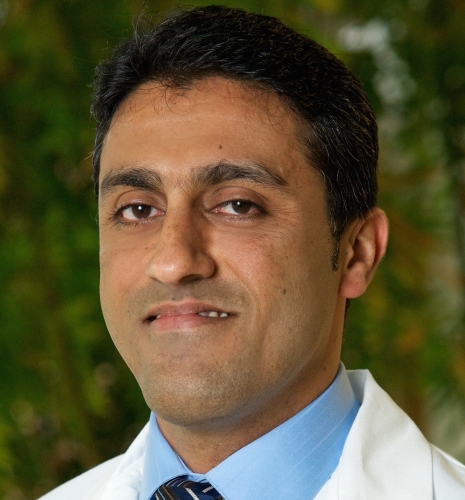
 copy sq 500.jpg)




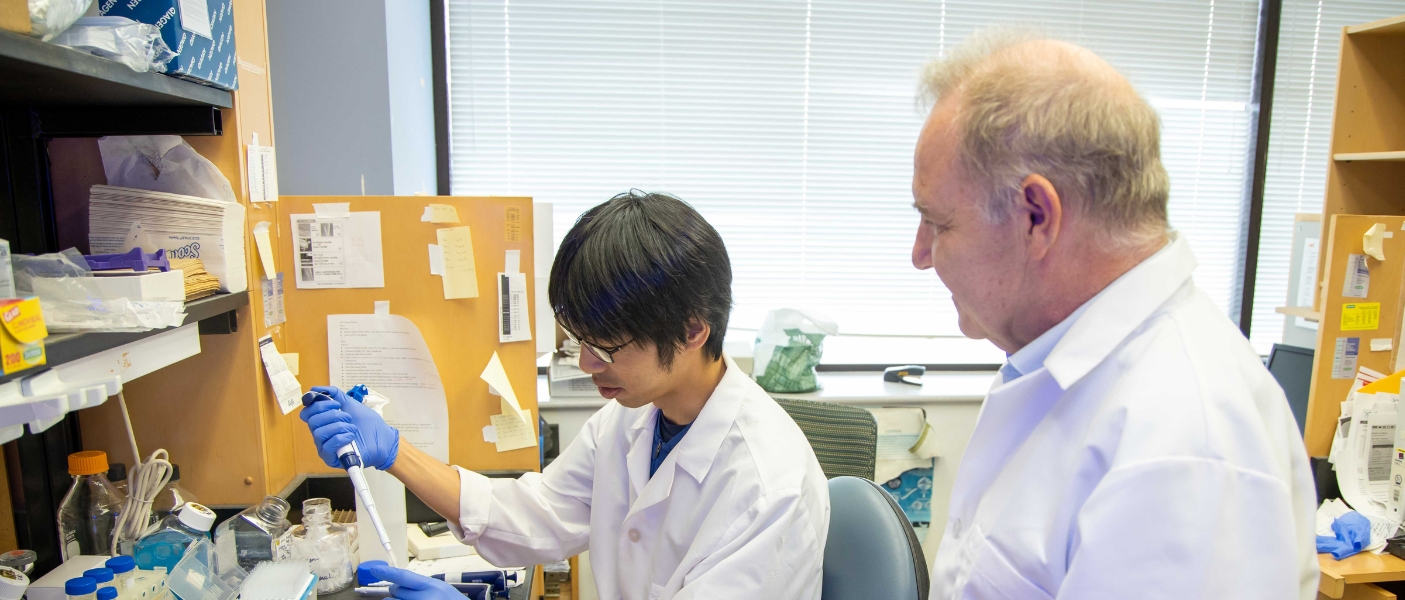














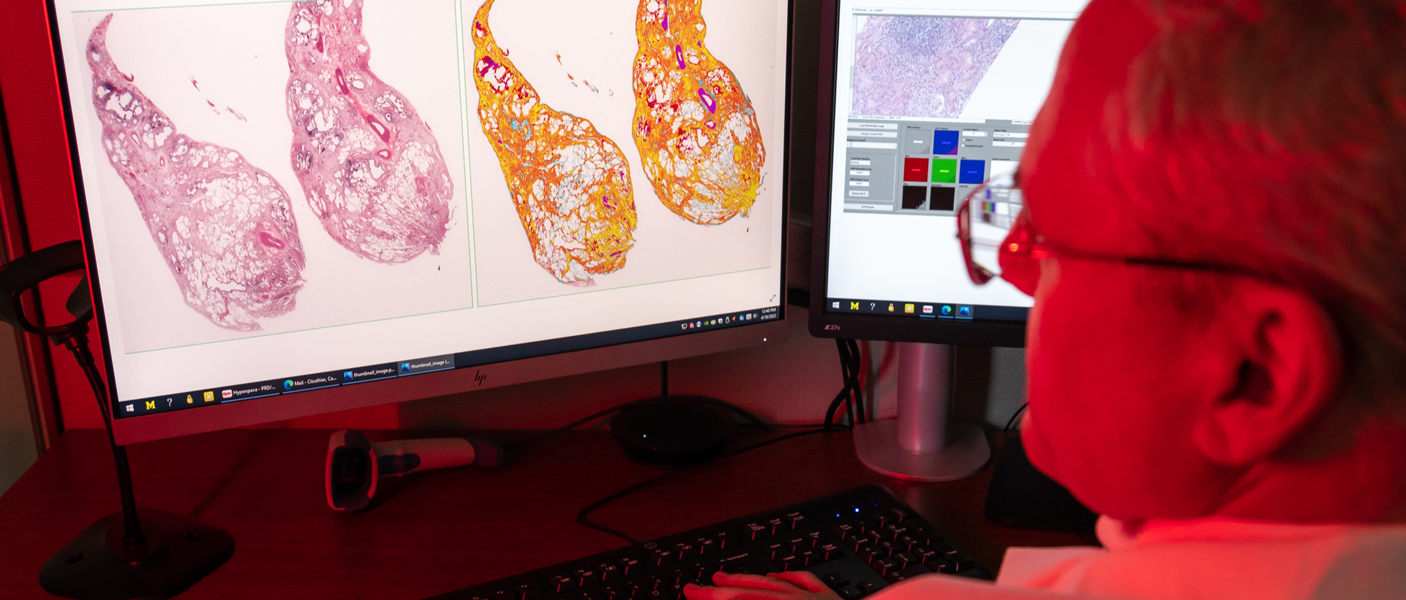














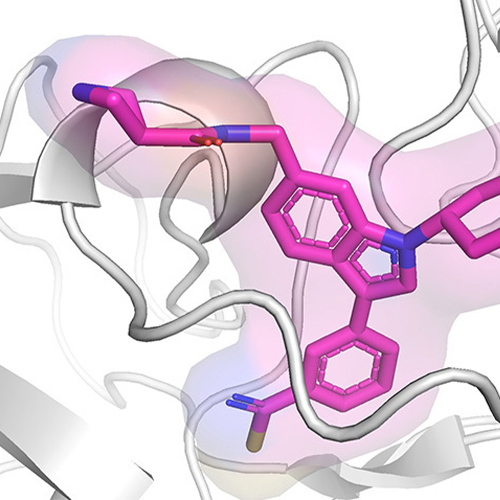




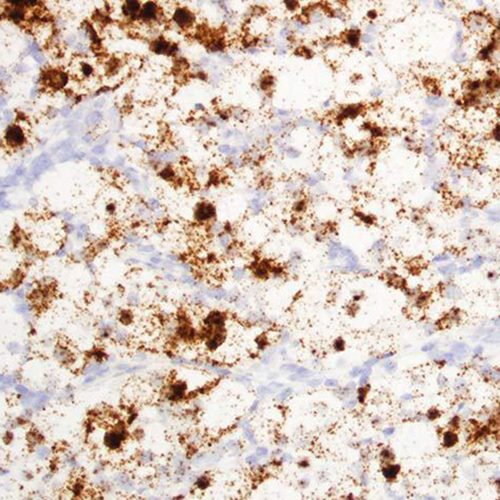





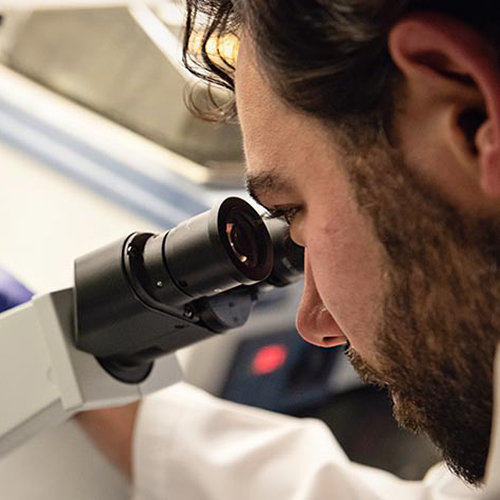
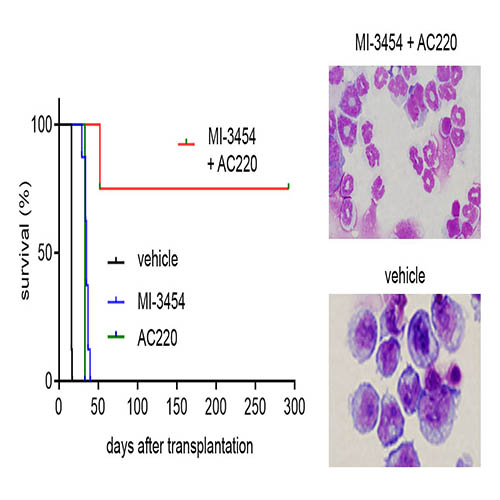
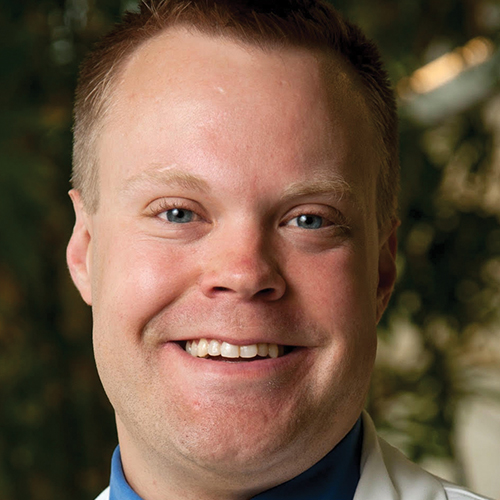
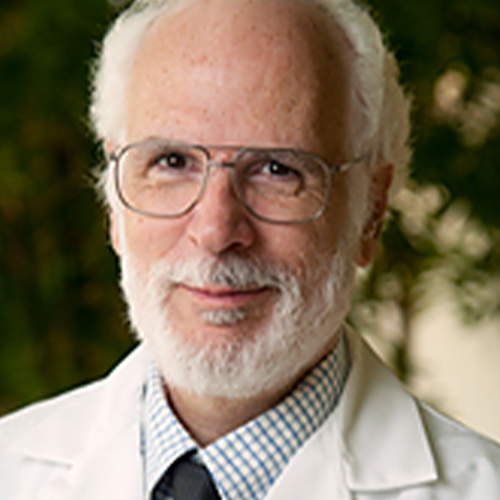


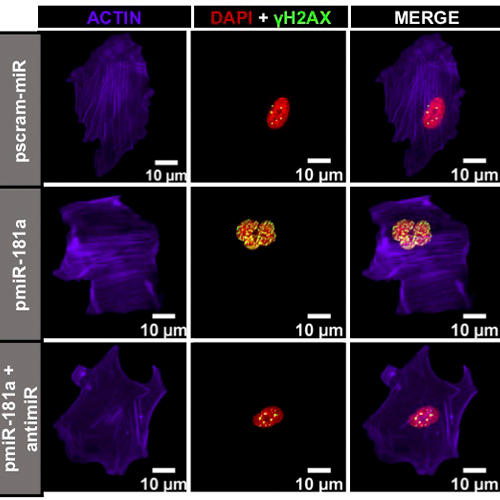
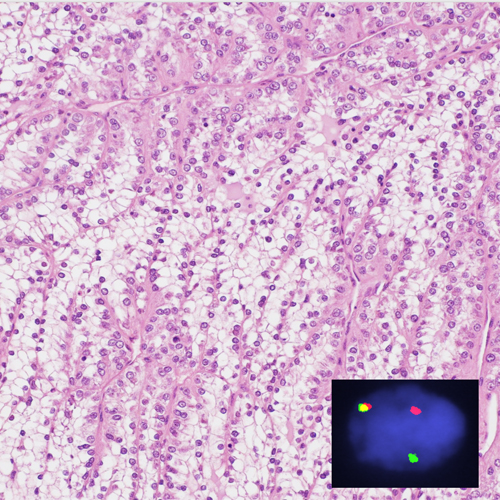
.jpg)
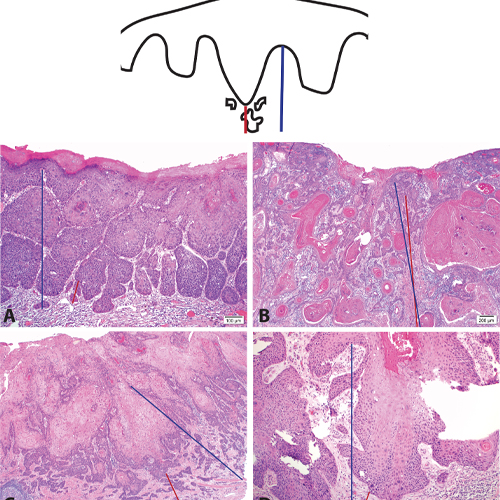

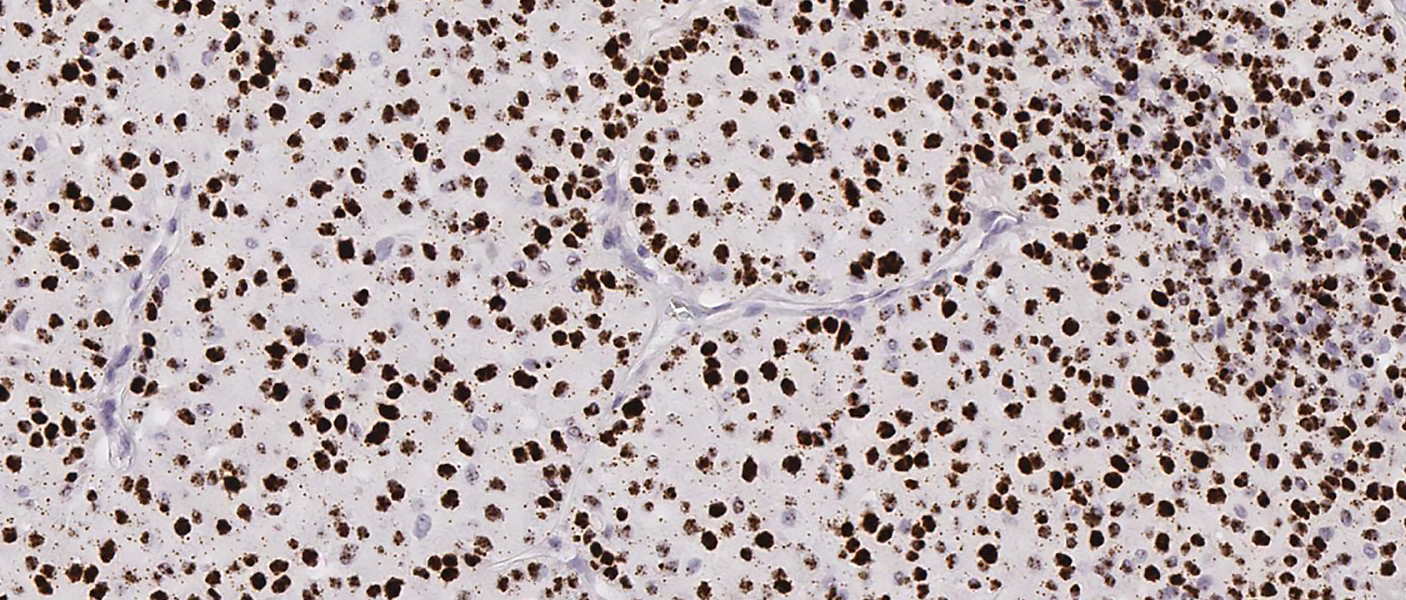
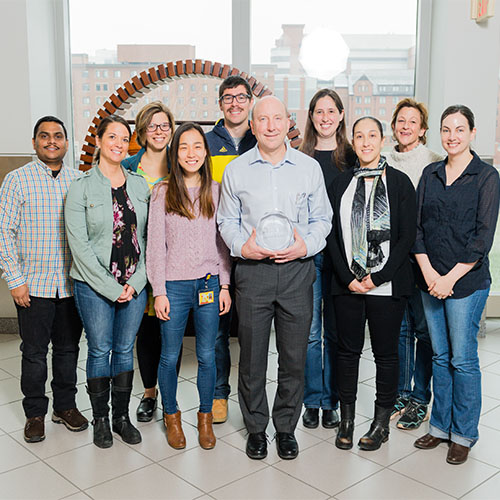
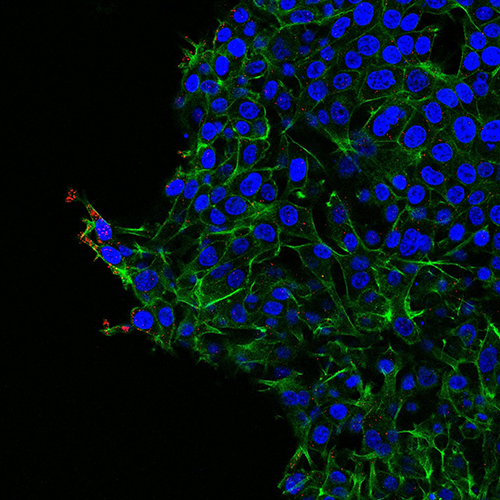




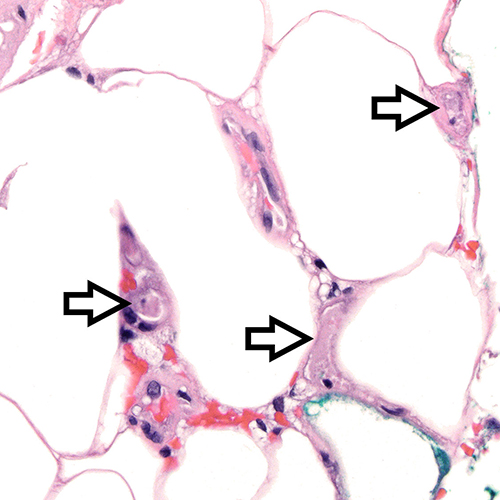
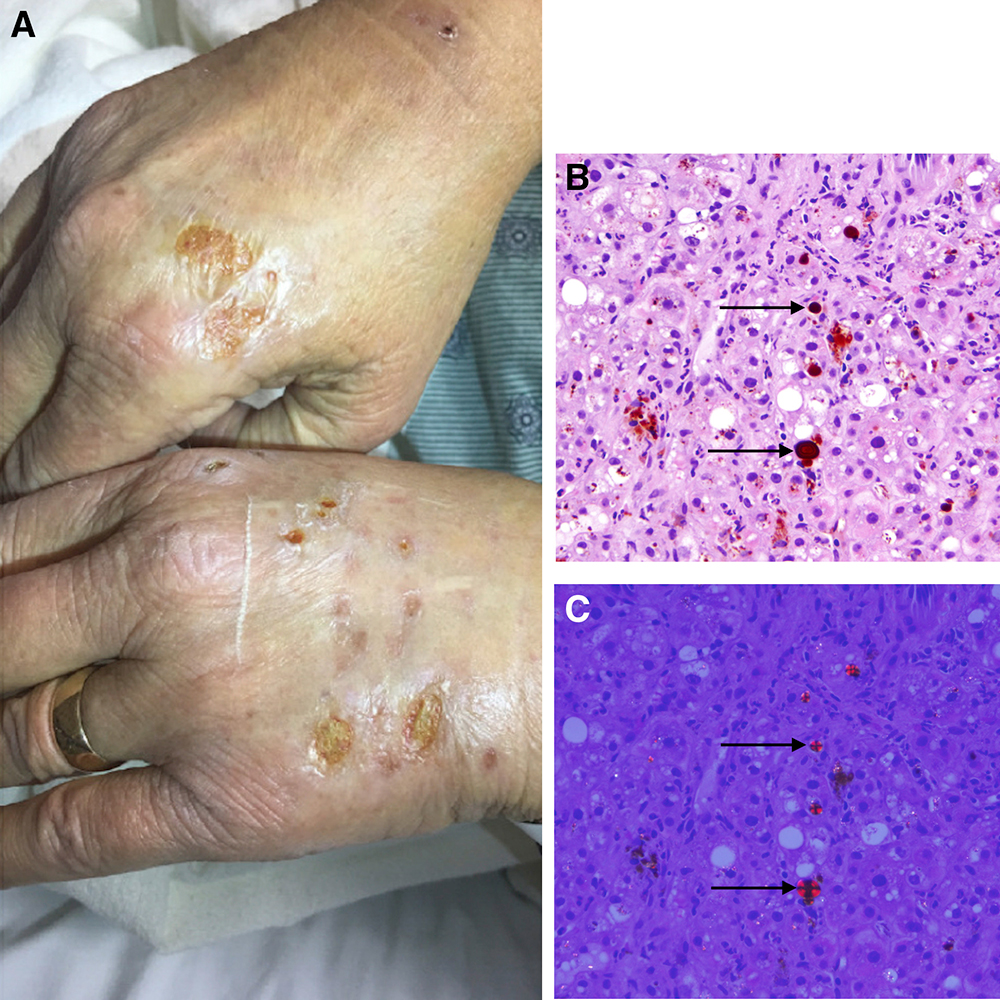
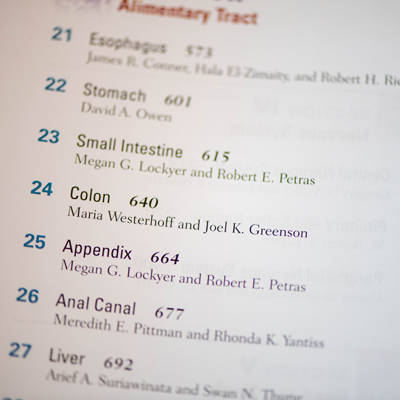
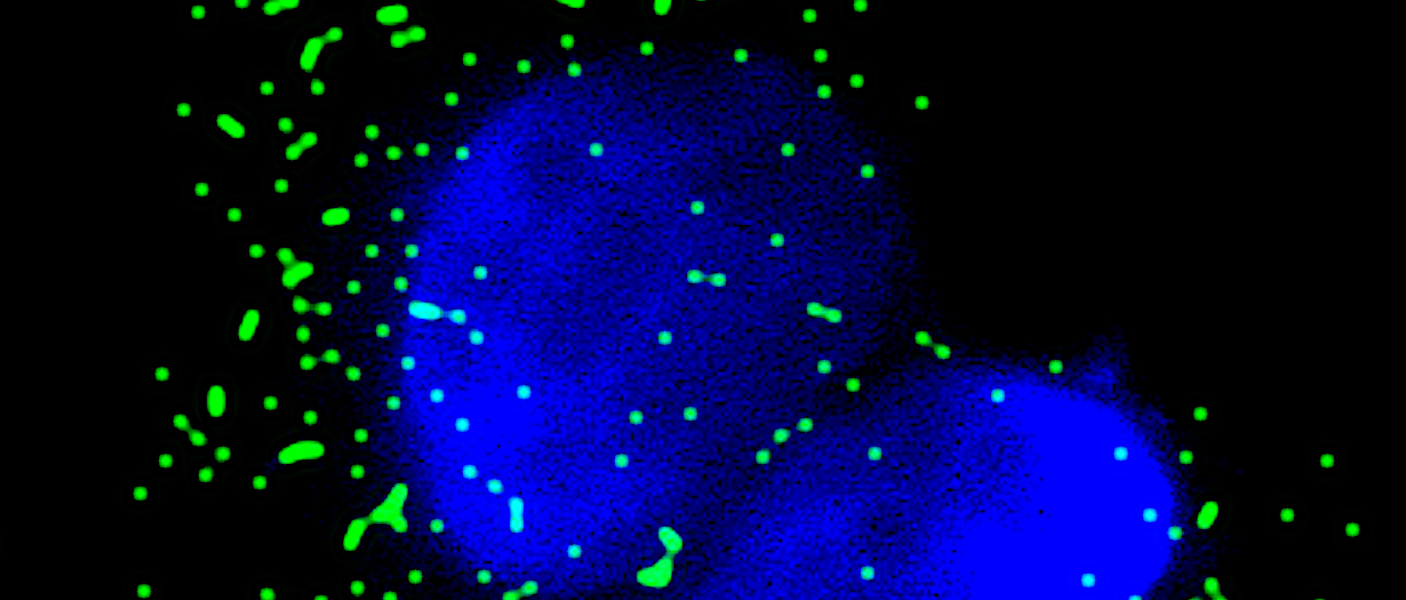



 ON THE COVER
ON THE COVER
 ON THE COVER
ON THE COVER
 ON THE COVER
ON THE COVER
 ON THE COVER
ON THE COVER
 ON THE COVER
ON THE COVER
 ON THE COVER
ON THE COVER
 ON THE COVER
ON THE COVER
 ON THE COVER
ON THE COVER
 ON THE COVER
ON THE COVER
 ON THE COVER
ON THE COVER
 ON THE COVER
ON THE COVER
